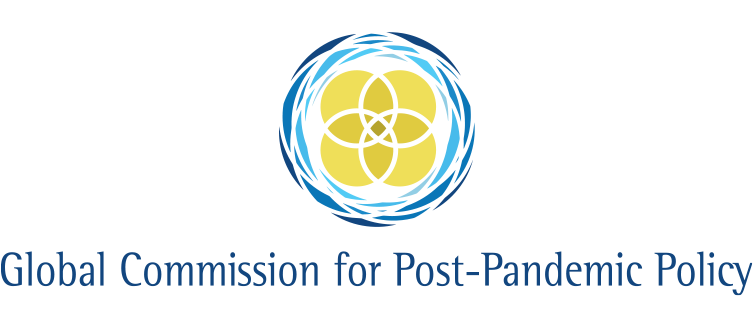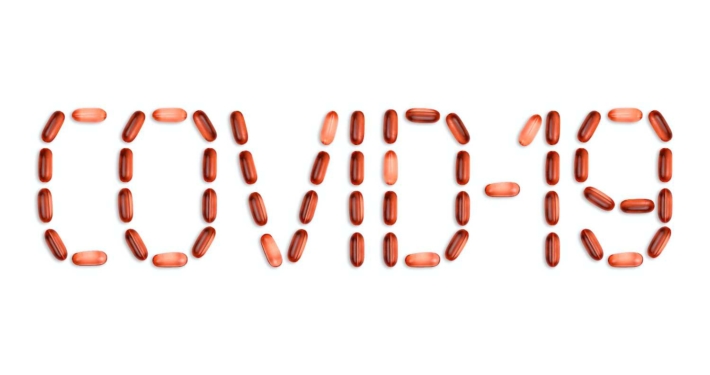The Pandemic, week to June 4th
Health
Worldwide, daily recorded COVID-19 infections have dropped to almost half the level during their global peak at the end of April, although that still translates to around 460,000 new cases per day. Case figures are still growing in 50 countries, and 12 countries remain at or near their pandemic peak This is largely a group in South America facing overwhelming caseloads and some South-East Asian nations (Cambodia, Malaysia, Taiwan, Thailand) which initially controlled the virus but are now seeing surges of infections.
The declining infection rate has been attributed to increasingly rapid vaccine rollouts, particularly in Europe and North America. The first days of June have seen the UK announce that three-quarters of its adult population have received at least one dose, while President Joe Biden has announced a raft of new incentives to hit his July 4th 70% target, including free child care, sports tickets, flights and “free beer for everyone 21 years and over to celebrate the independence from the virus”. The most dramatic progress in vaccinations has come in China, where the daily rate has risen from 5 million in mid April to more than 20 million now, accounting for nearly two-thirds of the global total of 33 million daily. Poorer countries remain far behind.
The UN-backed COVAX initiative, which distributes free vaccines to low- and middle-income countries, has received significant boosts. Japan announced it will contribute a further $800 million to the scheme, which brings the country’s contribution up to $1 billion, second only to the $2.5 billion pledged by the US. COVAX’s managers are seeking about $2 billion more to reach their target sum of $8.3 billion. Meanwhile, the World Health Organization (WHO) issued an emergency use listing for the vaccine made by Sinovac, the second such authorisation granted to a Chinese manufacturer, meaning that Sinovac shots can now be bought by donors for use in poorer countries, including under COVAX. Finally, the US outlined how it would distribute the first batch of its donation of 80 million vaccines to poorer countries, with 75% of the first 25 million doses to be shared via COVAX.
In China, the province of Guangzhou reported 50 cases (as of June 3) of a coronavirus variant that appears to be more transmissible than others. This latest outbreak has seen neighbourhoods locked down in the city of Guangdong, and anyone wishing to leave the province is required to show a negative COVID test taken within the past 72 hours. Meanwhile, authorities in neighbouring Vietnam discovered a new variant that is a hybrid of strains first found in the UK and India. The variant has been detected in 30 of Vietnam’s 63 municipalities and could be behind a recent surge in cases.
In Peru, a study commissioned to analyse and update the Andean country’s COVID death toll has reported a more than doubling from 69,342 to 180,764. According to Peru’s health minister, “a significant number of deaths were not classified as caused by COVID-19” originally and criteria have now been updated. Questions about Peru’s death toll began early in the pandemic, when scenes of cemeteries filling up and hospitals buying refrigerated containers to act as makeshift morgues suggested the situation was worse than reported.
A widely noted scientific study indicated that COVID-19 vaccines may offer sufficiently lasting protection to reduce the need for booster shots. Evidence increasingly suggests that mRNA vaccines such as those made by Pfizer and Moderna do not depend exclusively on antibodies, which diminish over time, but also other layers of the immune system. New variants remain a concern, however.
In the US, health researchers estimate that during the early months of the pandemic between 7,000 and 10,000 more kidney disease patients died than would normally have done so. The report, published by the Centers for Disease Control and Prevention (CDC), also showed a strong geographical relationship between such deaths and centres of the COVID-19 outbreak in the spring and summer of 2020. Researchers say more information is now needed on what caused the deaths — whether COVID infection, difficulty accessing medical care, or something else.
The World Health Organization has launched a new nomenclature for COVID variants. The system will now be based on Greek letters, assigned in the order that variants were detected. This offers an alternative to complicated numerical formats and country-based descriptions, which risk national stigma and may discourage countries from monitoring for variants. The B.1.1.7 (“UK”) variant becomes Alpha, the B.1.351 (“South Africa”) variant becomes Beta, and so on.
Economy
The OECD has raised its forecast for world economic output, predicting a return to pre-pandemic levels of GDP in 2022. It now expects global growth of 5.8% this year and 4.4% in 2022, up from 5.6% and 4% respectively back in March. In the first quarter of 2021 Australia became the sixth country to see its economy surpass its pre-pandemic output, producing 0.8% more goods and services totalling 0.8% than in the final quarter of 2019. The other five are China, Chile, Romania, Lithuania and South Korea.
The International Labour Organization (ILO) has described an “unparalleled” global labour market crisis. A report by the UN agency estimated 8.8% of total working hours were lost globally last year, “the equivalent of the hours worked in one year by 255 million full-time workers”. The ILO estimates that without a pandemic the world would have created 30 million jobs in 2020. Instead 140 million full-time jobs were lost in the first quarter of this year and 127 million in the current quarter. An uneven economic recovery should create 100 million jobs by the end of this year, plus another 80 million in 2022 — but that is still short of pre-pandemic levels.
In the US, jobs growth recovered in May, with 559,000 jobs being added compared with the disappointing 266,000 in April. The Labor Department’s employment report offered reassurance that the pandemic recovery was on track, with the unemployment rate dropping from 6.1% of the workforce to 5.8%. That still leaves a way to go, however, before the country can restore its pre-pandemic jobless rate of 3.5%, suggesting that despite reports of some sectoral labour shortages generalised wage inflation is still some way off.
Global food costs rose for the twelfth consecutive month in May, the longest sustained increase in a decade. The figures heighten concerns about consumer price inflation as economies struggle to reopen after the COVID crisis. Underlying causes include drought in key Brazilian growing regions hitting crops from coffee to corn, which in turn boosts costs for livestock producers and strains global grain stockpiles that have been depleted by increased Chinese demand. In 2008-2011, food price hikes led to riots in more than 30 nations.
In the UK, the pandemic could have an economic silver lining for the country’s long-standing productivity crisis, which since the crash of 2008-09 has been one of the worst of all advanced economies. The UK’s statistics agency has reported a 3.2% increase in investment in information and communication technology for the first quarter of 2021, compared to the last quarter of 2019. Combined with business innovation and improved training, this could be a harbinger of productivity rises to come.
Politics
In Israel, Prime Minister Benjamin Netanyahu has bucked this year’s international trend of political gains coming from successful vaccination programmes. Despite Israel leaving other countries in its wake on vaccinations, inconclusive elections in March (the fourth inside two years) have this week resulted in the formation of a new government by several opposition parties that looks likely to end Netanyahu’s 12 years in power. The final hurdle, and Netanyahu’s final chance to beat off the challenge, is a parliamentary vote expected to take place next week.
In Brazil, thousands gathered in front of Congress in Brasilia to protest President Jair Bolsonaro’s management of the pandemic, which has seen nearly 460,000 deaths recorded in the country. Similar protests took place in other major cities, where demonstrators laid thousands of symbolic crosses in tribute to those who have died. In the previous week, as part of an inquiry into Bolsonaro’s handling of the pandemic, the head of Brazil’s prestigious scientific centre the Butantan Institute told a Senate committee that the president’s actions had delayed the country’s vaccination programme.
In the EU, demonstrations also took place in Brussels to protest pandemic-related restrictions across the 27-member bloc. On the same day, around 1,000 health workers held an authorised demonstration to demand financial support for hospital staff. Meanwhile, most European countries have been phasing out COVID restrictions, including in Germany where Chancellor Angela Merkel announced that temporary laws allowing the federal government to require strict pandemic measures in regions with high rates of infection can expire at the end of June.
In the Democratic Republic of Congo, the pandemic has taken an all too real toll on politics with 5% of lawmakers in parliament dying from COVID-related causes. Africa’s fourth largest country, with a population of 86 million, has so far reported 31,000 coronavirus cases and 786 deaths, 32 of whom were parliamentarians. The DRC’s death toll is thought to be vastly underestimated, and the country’s vaccination programme has so far administered only 23,000 doses, mostly in the capital Kinshasa. Meanwhile other threats have emerged, including a resurgence of diseases like measles, polio and yellow fever as parents avoid healthcare centres. A volcanic eruption has also caused tens of thousands to flee the eastern city of Goma.


 Volodymyr Hryshchenko, Unsplash
Volodymyr Hryshchenko, Unsplash
 Adam Nieścioruk, Unsplash
Adam Nieścioruk, Unsplash
 visuals, Unsplash
visuals, Unsplash


